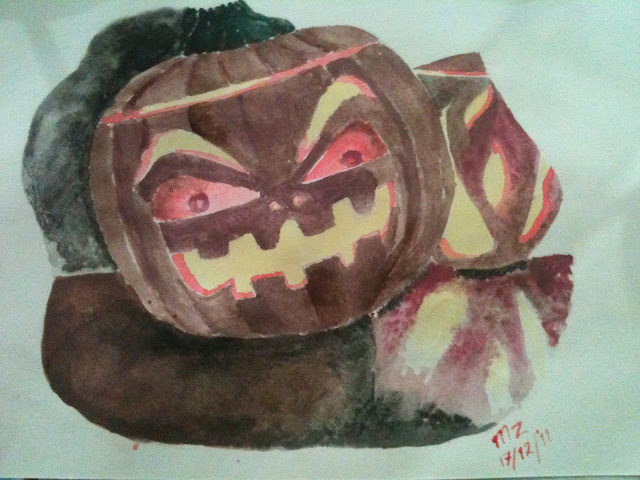Walking near Teen Darwaza in Ahmedabad you may witness the rare occasions where Indians make and respect queues. Lines of people, males females children, different religions and ages, sitting down, waiting for their turns. I was here because my father had missed three of his roza for the month of Ramadhan: one of the less frequent reasons you may be required to give away a part of your property, liquid or illiquid. More often it is the compulsory Zakat.
The word 'wealthy' in the ab0ve definition has a very low bar. The affect is that there is a culture of gifting money, clothes, feeding people, and such like in the culture I grew up around (not strictly 'in').
A few enterprising people in Ahmedabad have turned this doing good into a business opportunity. Growing up in Ahmedabad I saw these 'hotels', (in Ahmedabad a hotel is a place for eating out) go from being a place for a cheap non-veg food place to full time hotel for the poor. You can feed someone a whole (unlimited) meal for Rs 20 or a fixed meal for Rs 10.
Anonymity is a prime concern in making such gifts, and these hotels present a good way to quickly move in, pay the cash, and leave. I am not sure if the people who line-up to eat at these places will strictly meet the definitions of 'needy', and investigation about these kind of things before giving zakat is as important as giving the zakat. But if someone is willing to be considered a beggar they are needy enough for me. Loss of hope, self respect is as serious as loss of a limb. I should know.
It is indeed a good business. Making a living while doing good work, god's work, work deemed great across religions and cultures. And all this while you have more customers. I have often eaten at these places (as a self financed customer). The food is not bad at all. Of course its being non-vegetarian restricts who it caters to, but I feel that hungry and destitute may not refuse a hot fresh meal.
The fact that even in the present difficult global financial circumstances, the business thrives and customers have low waiting time, says something about the people of Ahmedabad.
A related newspaper article with a picture (2009):
http://www.ahmedabadmirror.com/index.aspx?Page=article§name=News%20-%20City§id=3&contentid=200903282009032802283964463306406
It should be noted that prices have doubled since 2009, in line with many food items.
P.S: I tried to interview some of the hotel owners, but they were hesitant in being interviewed or talk about their business. Possible reasons can range from tax to my dubious apparent religious affiliation, Gujarati Muslims still feel insecure. Total personal failure at reassuring my subjects is the prime suspect.
Zakat is one of the pillars of Islamic life. It is a duty to Allah that obligates every wealthy individual to share with the needy a portion from his/her wealth. It is a very important institution for the individuals as well as the society in general.
The word 'wealthy' in the ab0ve definition has a very low bar. The affect is that there is a culture of gifting money, clothes, feeding people, and such like in the culture I grew up around (not strictly 'in').
A few enterprising people in Ahmedabad have turned this doing good into a business opportunity. Growing up in Ahmedabad I saw these 'hotels', (in Ahmedabad a hotel is a place for eating out) go from being a place for a cheap non-veg food place to full time hotel for the poor. You can feed someone a whole (unlimited) meal for Rs 20 or a fixed meal for Rs 10.
Anonymity is a prime concern in making such gifts, and these hotels present a good way to quickly move in, pay the cash, and leave. I am not sure if the people who line-up to eat at these places will strictly meet the definitions of 'needy', and investigation about these kind of things before giving zakat is as important as giving the zakat. But if someone is willing to be considered a beggar they are needy enough for me. Loss of hope, self respect is as serious as loss of a limb. I should know.
It is indeed a good business. Making a living while doing good work, god's work, work deemed great across religions and cultures. And all this while you have more customers. I have often eaten at these places (as a self financed customer). The food is not bad at all. Of course its being non-vegetarian restricts who it caters to, but I feel that hungry and destitute may not refuse a hot fresh meal.
The fact that even in the present difficult global financial circumstances, the business thrives and customers have low waiting time, says something about the people of Ahmedabad.
A related newspaper article with a picture (2009):
http://www.ahmedabadmirror.com/index.aspx?Page=article§name=News%20-%20City§id=3&contentid=200903282009032802283964463306406
It should be noted that prices have doubled since 2009, in line with many food items.
P.S: I tried to interview some of the hotel owners, but they were hesitant in being interviewed or talk about their business. Possible reasons can range from tax to my dubious apparent religious affiliation, Gujarati Muslims still feel insecure. Total personal failure at reassuring my subjects is the prime suspect.





















